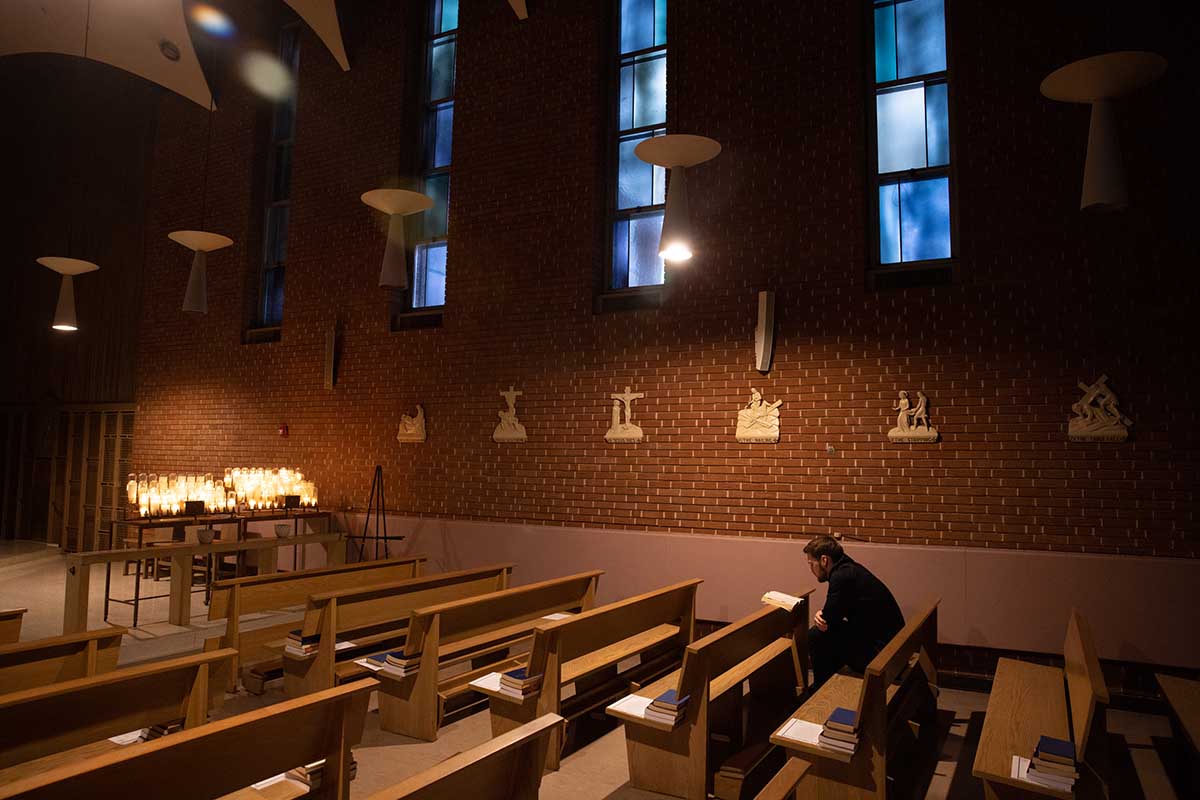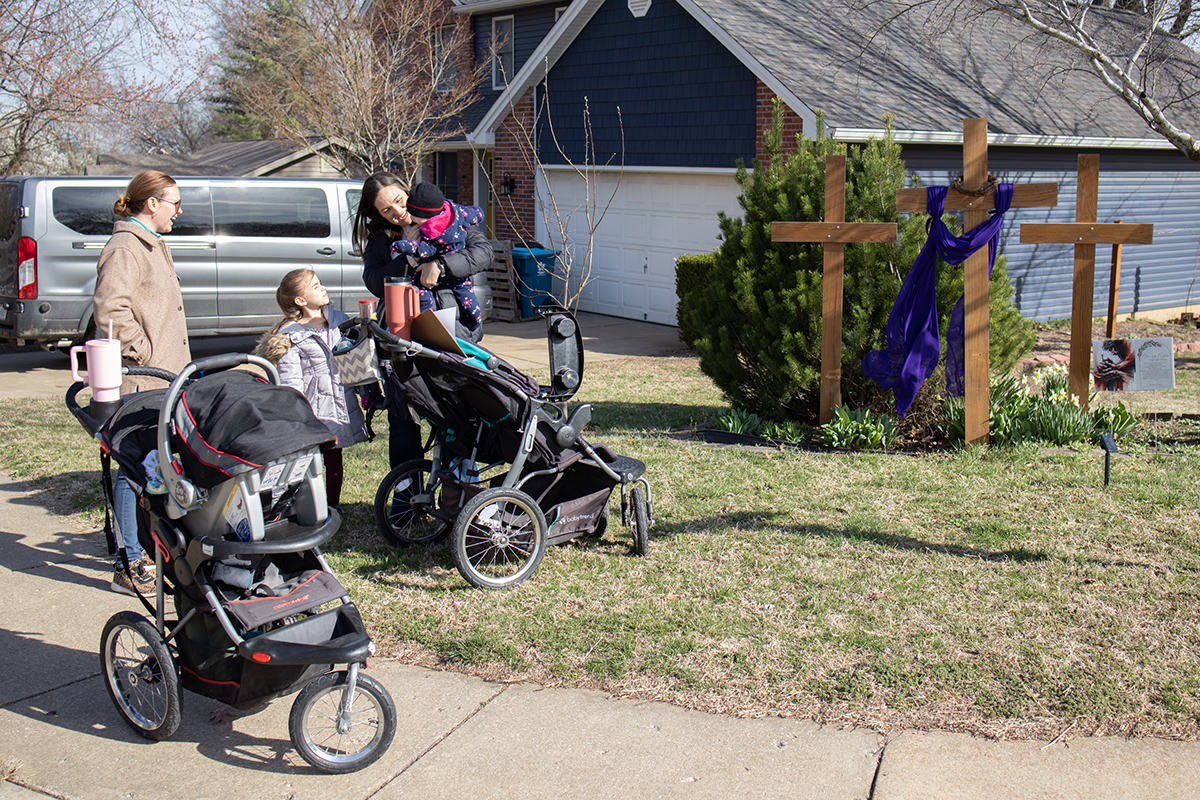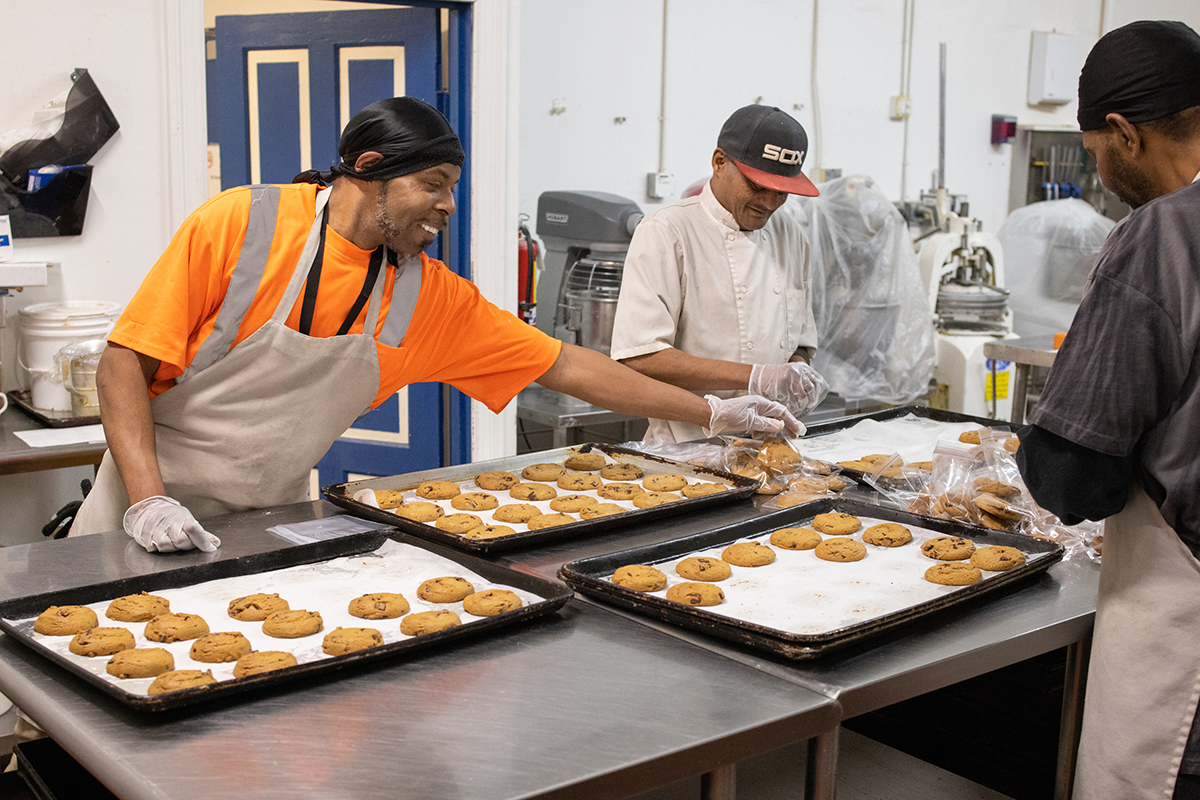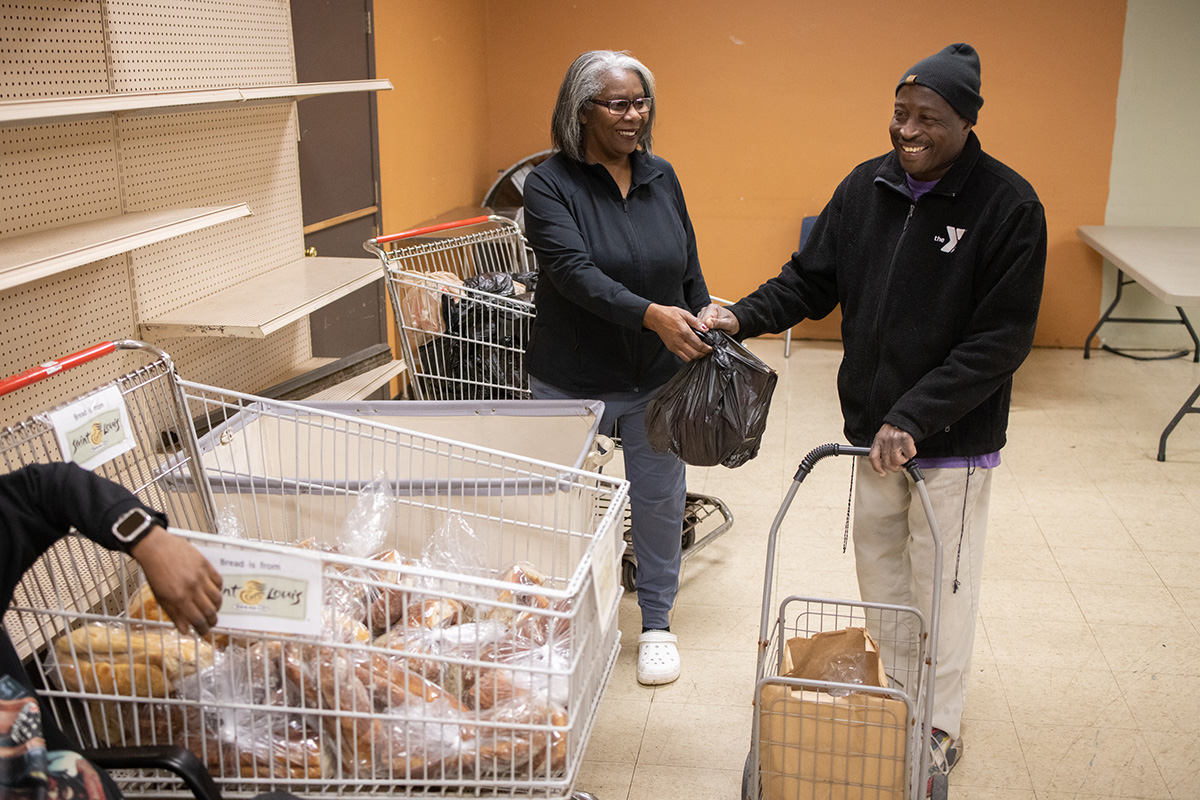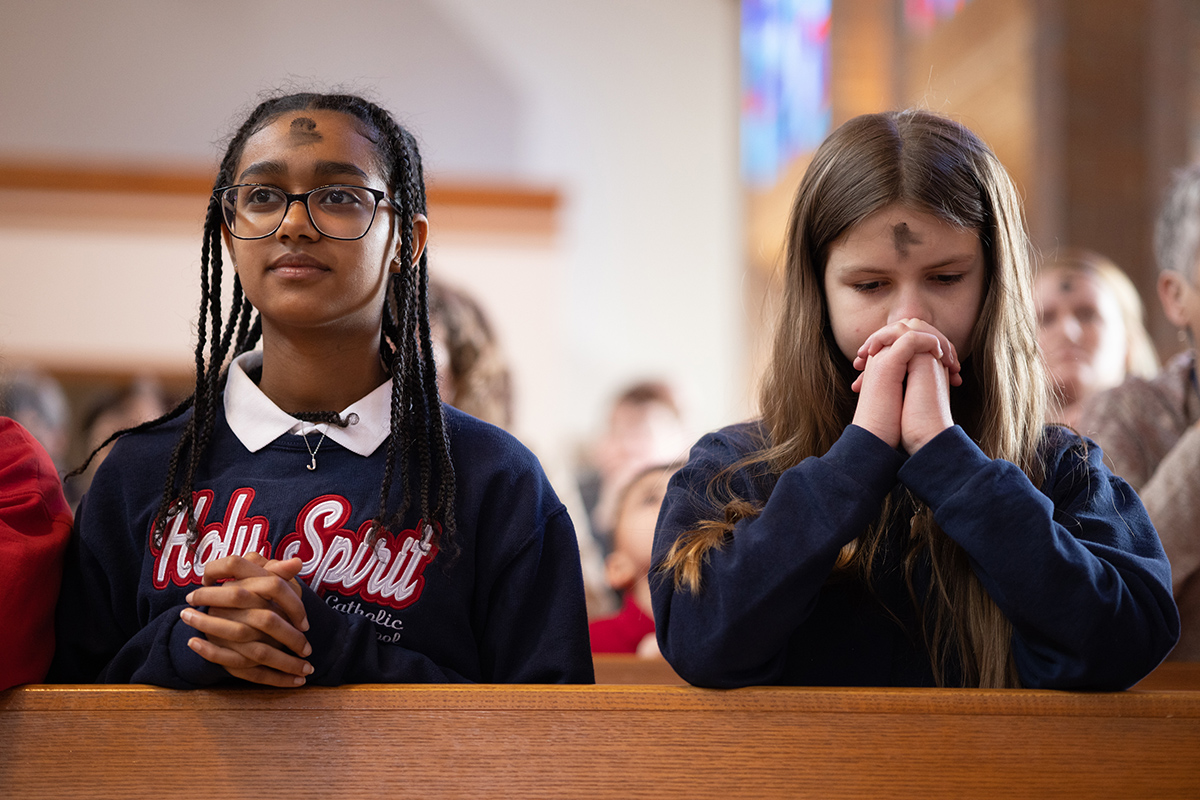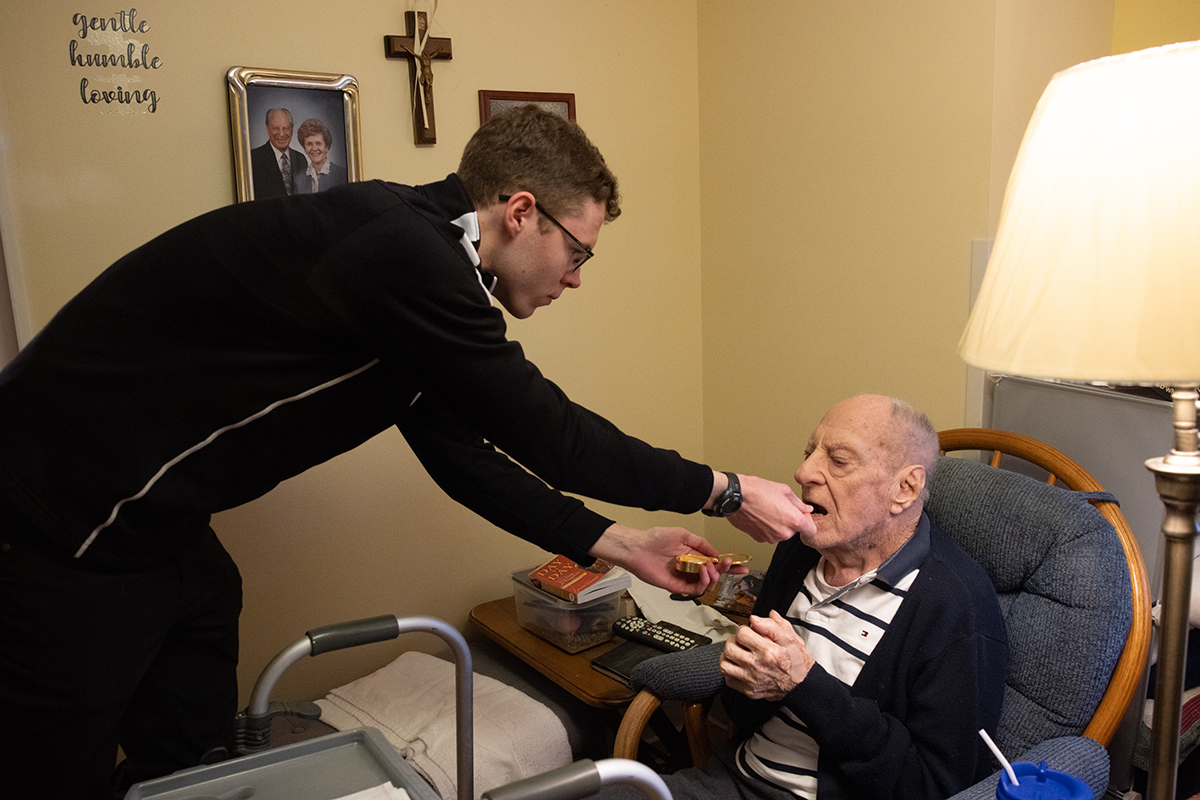A call to uphold the dignity and rights of workers

Catholic social teaching says that the economy must serve people, not the other way around, and work is a form of continuing participation in God’s creation
At Common Grounds Coffee House in Ste. Genevieve, general manager Pam Billings likes to get her employees’ input before making any changes around the cafe or to the menu. Jason Hill is one of their resident drink experts, so she’ll run a new caffeinated concoction by him, for instance.
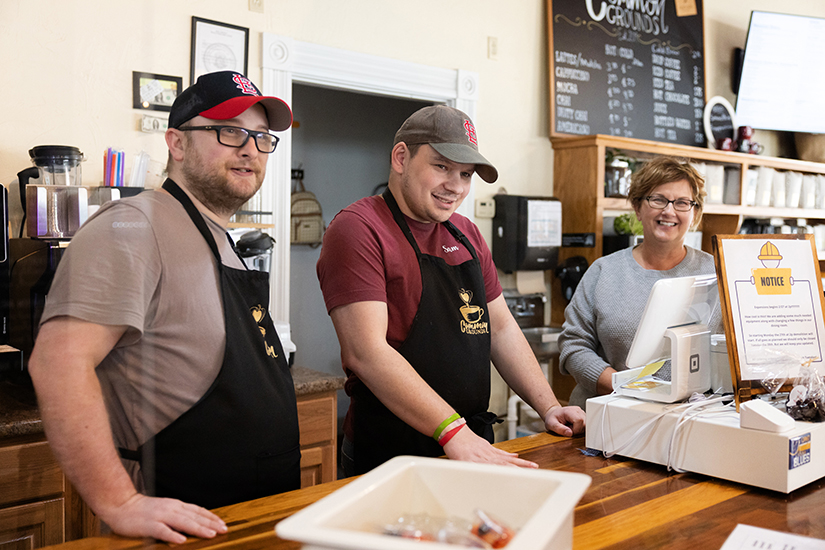
“If you give them the chance, they’ve got good ideas,” she said.
Common Grounds opened in the fall of 2019 to provide a place of employment and empowerment for people with developmental disabilities. Its mission is in line with one of the tenets of Catholic social teaching, which says that the dignity and rights of all workers must be protected. The economy must serve people, not the other way around, and work is a form of continuing participation in God’s creation.
The coffee house was established with some funding from the Senate Bill 40 board in Ste. Genevieve County, which administers tax funds set aside by Senate Bill 40 to develop and operate services that benefit people with developmental disabilities. Board chair Jason Schott, chief deputy in the Ste. Genevieve County Sheriff’s Office and parishioner at St. Joseph Parish in Zell, said the board saw the need for more employment opportunities, especially public-facing ones.
“It benefits the employees that we have here because we’re able to employ those individuals with special needs that might not have had a job,” Schott said. “… It also brings awareness to our general public and customers who come in about what our workers can do that they might not have known before. Our mission statement and values pretty much sums it up: This is a place to feel included.”
Sam Steagall has worked at Common Grounds “since day one.” He likes doing everything around the shop — taking orders, making drinks and talking to customers.
“Everyone here is fun to work with,” he said. “And I feel like I do good work when I’m here.”

Jason Hill has also worked at the coffee house since its opening. He enjoys being able to get to know customers while taking their orders. “You never know who’s going to come through the door, what part of the world they’re from. We’ve had people from Germany and Australia.”
“I’m happy to be here. I feel awesome, like I can put a smile on everyone’s face,” he said.
Billings, the general manager, came from a larger cafe business and joined Common Grounds about two years ago. She’s a parishioner at Ste. Genevieve Parish, and her Catholic faith drives her to “see the good in everyone,” she said. She and Schott hope to see the cafe grow and employ more people while serving as an inclusive business model for others in the area.
“I know we’re not the only one that hires individuals with special needs; there are other businesses in the county that do. But there’s also a lot more that could experience and hire these individuals,” Schott said.
Advocating for the formerly incarcerated

Toni Jordan has seen the difference a good job can make to someone who has recently exited prison, in her own life and the lives of the women she works with.
Now the coordinator of the Let’s Start and women’s reentry housing programs with Criminal Justice Ministry, she was turned down for telemarketing jobs once employers found out she had past felony convictions. Her life changed when she found a job she loved, first at Queen of Peace Center, part of Catholic Charities of St. Louis, and then Let’s Start and Criminal Justice Ministry.
“It gives people that drive: ‘OK, this is what being part of a community, being a productive citizen feels like, finding my purpose and what I was really put on this earth to do,” she said. “It can be a motivator for people to keep going in their recovery process.”
Criminal Justice Ministry, which is supported by the Annual Catholic Appeal, serves individuals and families impacted by the criminal justice system in many ways, including reentry programs that include employment help for those getting out of prison. Caseworkers often partner with Saint Louis University’s Transformative Workforce Academy to connect formerly incarcerated people with jobs and job-readiness training.
Jordan, who attends St. Matthew the Apostle Parish in St. Louis, advocates for formerly incarcerated people by using her own story to break down preconceived notions. “I try to educate people on: Yes, we made a mistake, but we’re not bad people. You might say you’re against people with drug addictions because they never change — but you didn’t know that about me by looking at me. As you speak to me, and I tell you where I came from, that I’m 19 years into this recovery process,” people realize that past convictions or addictions don’t define a person, she said.
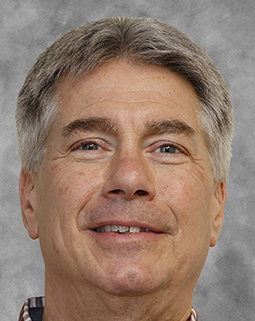
Case manager Paul Faust facilitates peer support groups for men just out of prison. He’s seen a decreased stigma that hinders people who have served time from finding a steady job. Part of it is the high demand for workers in the economy, but he also sees evolving attitudes among employers.
“I think our society is finally wrapping their heads around the fact that supporting people as they transition in life is in everybody’s best interest,” he said.
Steady employment, where dignity and rights are respected, helps the men to see the dignity within themselves, Faust said. And it also significantly lowers the chances of recidivism, he noted.
“When you see guys first get out, and then they get a job, and start getting promoted, and really understanding the value of solid employment — their self-esteem is improved,” he said. “Their realization that it can be done, and they’re doing it, is incredible to experience. Self-esteem, confidence and personalities start to really blossom.”
A parishioner at St. Simon in Green Park, he sees this work to uphold the dignity and rights of all people, no matter what they’ve done in the past, as a truly essential part of following in Jesus’ footsteps. “If that’s not the foundation of our faith, I don’t know what is,” he said.
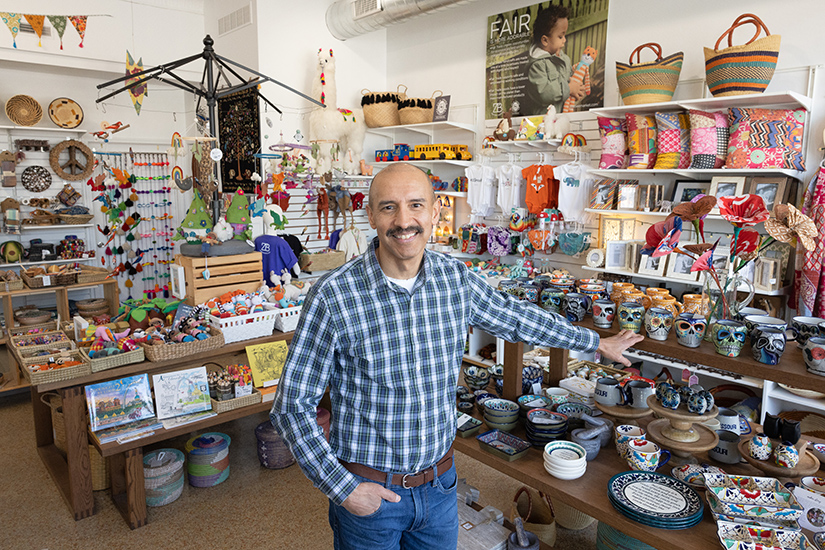
Dignity and rights around the globe
For Julio Zegarra-Ballon, supporting the dignity and rights of workers is a mission that extends worldwide. The St. Margaret of Scotland parishioner owns Zee Bee Market, a fair-trade store that sells handcrafted, sustainably produced gifts from more than 30

countries.
The fair-trade concept is based on providing small farmers and artisans with good wages, safe working conditions, environmental responsibility training and opportunities for economic growth. It doesn’t mean paying artisans in other countries wages based on U.S. standards; it considers the time and skill involved in production, living wages and purchasing power in that particular community and other living costs. Fair-trade organizations also avoid the markup of the corporate world’s intermediaries, allowing producers to earn more profit.
“This is a critical point of what makes fair trade unique,” Zegarra-Ballon said. Typical large corporations start with the sale price of an item and work backward, tallying up costs and profits, and “at the very end, there is an individual factory worker that will be paid no more than, fill in the blank.” In fair trade, the process begins at the other end — with the person. “(The artist) says, this is what it’s going to take, and we’ll build the price up from that.”
Many fair trade groups support producers’ dignity and rights by working with them to solve other life obstacles. Zegarra-Ballon cited a group of women in Bangladesh who live in rural villages and crochet and knit children’s toys. The work provides extra income, and on-site childcare is available for mothers to bring young children — that’s rare in rural Bangladesh.
“It brings tears to my eyes when I think about it,” he said. “They bring their kids. Their kids have nutritious meals and a healthy environment while the women are doing their work. And they’re earning an income that they have never in the past been able to acquire. This income is allowing their children to go to school, to take them to a doctor for a health checkup for the first time in their lives.”
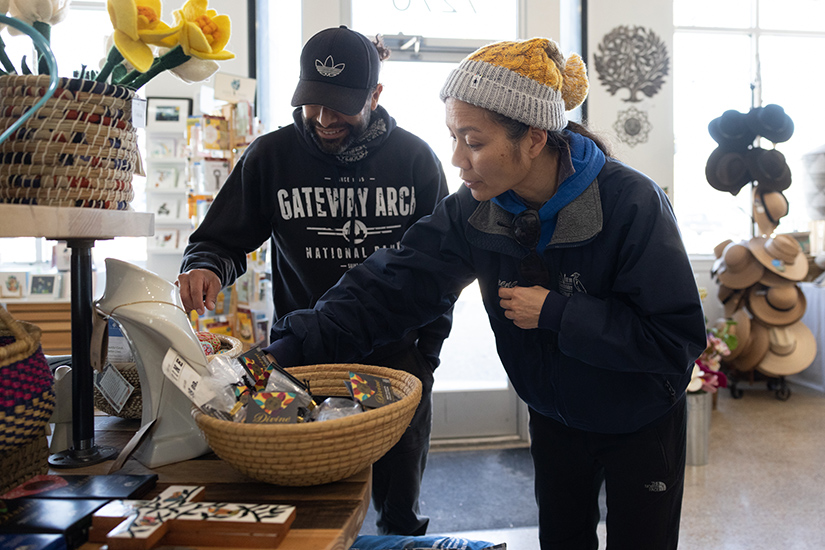
Other groups he works with specifically employ people on the lowest tier of caste systems in countries like India.
“Some of these fair trade suppliers that I am fortunate enough to work with have made a commitment to go to these remote villages, and only start businesses that employ the so called ‘untouchables,’” he said. “This is many times the first time these people have a chance to learn how to read, how to write, and how to use their skills to create and work in places, where they would have never in their lives ever been able to be a part of society, to be productive citizens. That’s just one other way that this goes beyond paying people fairly.”
A native of Peru, Zegarra-Ballon has seen extreme poverty first-hand, he said. That experience, and his belief that we should treat everyone else as God’s beloved children, inspired him to leap into fair trade.
“We can all open our wallets every day and choose to buy something that is either hurting someone in a country where there is no regard for the human condition, or give those dollars to the person who is breaking the cycle of poverty through their own hard work,” he said. “The more we know, the more people will choose to support a model that truly focuses on people first, planet first, more than profits.”
>> Catholic social teaching and Lent
Catholic social teaching is the collection of the Church’s wisdom on building a just society and living lives of holiness amidst the challenges of modern society. Modern Catholic social teaching has been articulated through a tradition of papal, conciliar and episcopal documents, beginning with Pope Leo XIII’s 1891 encyclical “Rerum novarum: On capital and labor.”
The Compendium of the Social Doctrine of the Church explains, “The Church exists and is at work within history. She interacts with the society and culture of her time in order to fulfill her mission of announcing the newness of the Christian message to all people, in the concrete circumstances of their difficulties, struggles and challenges. She does so in such a way that faith enlightens them so that they can understand the truth that ‘true liberation consists in opening oneself to the love of Christ.’ The Church’s social pastoral ministry is the living and concrete expression of the full awareness of her evangelizing mission in the social, economic, cultural and political realities of the world.” (Compendium of the Social Doctrine of the Church, 524)
Catholic social teaching is “an essential part of being Catholic,” said Father Don Henke, associate professor of moral theology at Kenrick-Glennon Seminary and pastor of St. Michael the Archangel Parish in Shrewsbury. But because of the wideness and depth of moral issues that make up social teaching, it can often be misunderstood. Some other aspects of moral theology are founded on “negative principles,” like “thou shalt not steal, thou shalt not kill,” Father Henke explained. “But what makes Catholic social teaching unique — and a lot more difficult — is that it focuses primarily on positive moral principles. It draws us to consider the things that we should do.”
It’s easy to tell if we’ve stolen or killed someone. But we have to wrestle with the question of whether we are truly upholding the dignity of all people, or showing preferential care for the poor, Father Henke said, and people can live out the teachings in a vast number of ways.
The important thing is that we do recognize our duty to participate in the work of Christ in the world, Father Henke said. “As St. Teresa of Avila said, we are Christ’s hands and feet, we are the way Jesus cares for people in the world,” he said.
Engaging in social efforts is a natural path for evangelization, too, when we share our “why” with others, he said.
“It would be wasting good efforts if we’re not saying that we are engaging in and doing these things because of our love for Jesus,” Father Henke said. “We’re modeling our lives after Him, and we’re meant to show our love of Him by how we love our neighbor.”
The reflection and sacrifice that we’re all called to during Lent makes the season an optimal time to consider how we are engaged in and upholding the principles of Catholic social teaching, said Father Don Henke, associate profes
At Common Grounds Coffee House in Ste. Genevieve, general manager Pam Billings likes to get her employees’ input before making any changes around the cafe or to the menu. Jason … A call to uphold the dignity and rights of workers
Subscribe to Read All St. Louis Review Stories
All readers receive 5 stories to read free per month. After that, readers will need to be logged in.
If you are currently receive the St. Louis Review at your home or office, please send your name and address (and subscriber id if you know it) to subscriptions@stlouisreview.com to get your login information.
If you are not currently a subscriber to the St. Louis Review, please contact subscriptions@stlouisreview.com for information on how to subscribe.

